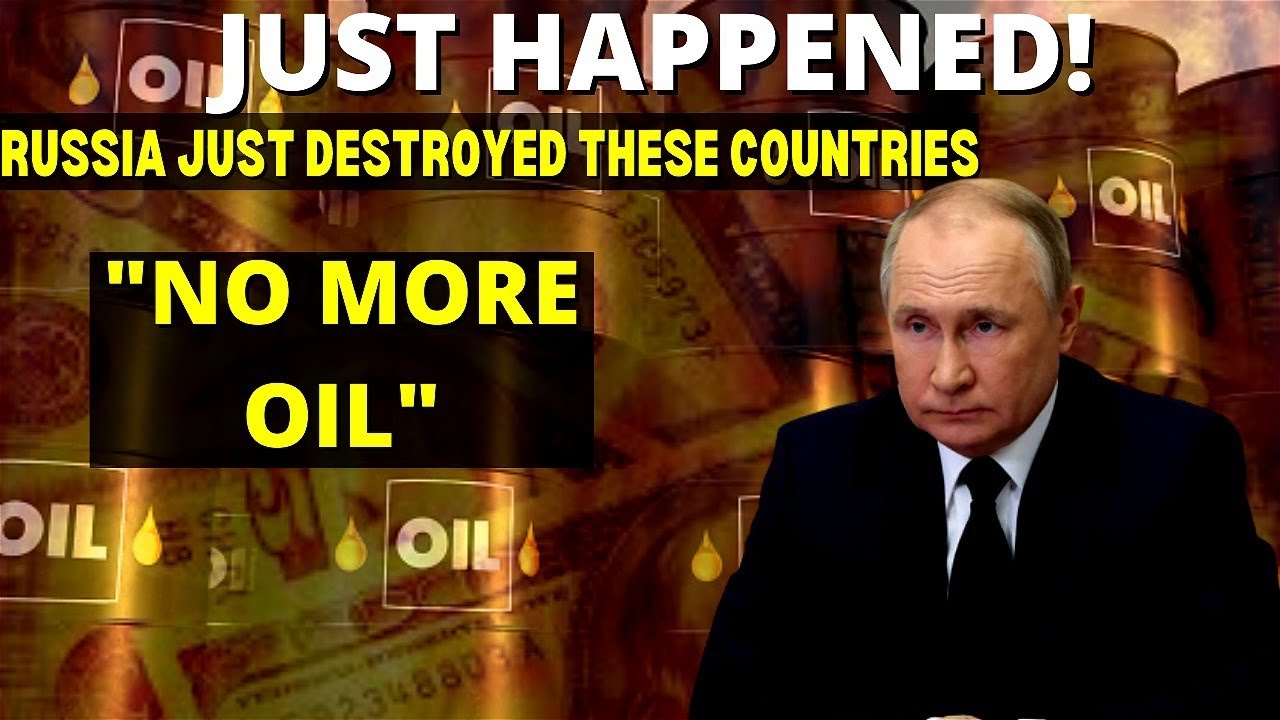
Russia JUST ANNOUNCED Deeper Oil Cuts | HUGE THREAT To G7 Countries
Keep up to Date & Bypass the Big Tech Censorship
Get uncensored news and updates, subscribe to our daily FREE newsletter!
Russia plans to reduce its daily oil production by 500,000 barrels in March, which is approximately 5% of its current output.
The reduction is in response to Western price caps and embargoes on its crude and refined oil exports. This one-time cut is unlikely to significantly impact global oil prices long-term.
However, if further cuts are implemented, it could lead to higher oil prices, particularly as China’s reopening from COVID-19 restrictions is expected to boost oil demand.
| Recommended Books [ see all ] | ||||
|---|---|---|---|---|
 |  |  |  |
 |
This move could undermine the price caps supported by G7 countries. These were implemented to ensure that Russian oil continues flowing into the global market and prevent sudden price spikes when their economies struggle with high inflation.
According to Simone Tagliapietra, an energy policy expert at the Bruegel think tank in Brussels, Russia’s action may be an attempt to weaponize oil, as it did with natural gas last year.
The demand for oil worldwide is predicted to increase again in 2023, especially in China. And a recent increase in air travel reminds us of the importance of jet fuel in this growth.
The International Energy Agency or IEA expects oil deliveries to go up by 1.1 million barrels a day, reaching a total of 7.2 million barrels a day in 2023.
This will lead to a record-breaking demand for oil of 101.9 million barrels a day.
According to the IEA report, the West’s recent restrictions on oil and price limits will play a significant role in meeting the growing demand.
Additionally, its stance of Beijing on domestic refinery activity and exports will also impact the market. Moreover, new refineries in Africa, the Middle East, and China are expected to satisfy the rising demand for refined products.
The report suggests that if the price limit on products is successful, the market could handle the situation. However, more crude supplies may be needed to avoid future stock shortages.
Meanwhile, oil production is a big money-maker for Russia. Despite severe sanctions from the West because of their takeover of Ukraine, Russia’s oil industry has stayed strong.
They even increased their daily output by 1.5% in 2022 to 10.7 million barrels per day by sending oil to India and China instead of the West. Unfortunately, there are limits on how much they can charge for their oil, which could hurt their ability to keep up their current production levels.
Russian oil producers face multiple challenges as they try to sell their oil. This includes offering discounts to attract a limited number of buyers and dealing with high shipping costs due to a shortage of tankers.
These factors are making it difficult for them to operate profitably. On the other hand, one potential strategy for Russia is to reduce production to create a seller’s market instead of a buyer’s market.
Bjarne Schieldrop, who is a commodities expert at SEB AB, suggests that this might be Russia’s goal.
Although Russia claims cutting output was voluntary, experts believe they only did it because of the sanctions. Russia had previously managed to avoid a decrease in output, but this was no longer possible.
Additionally, Russian oil producers are struggling with finding storage space for their production due to increased delivery times to farther destinations in Asia.
This has made it harder for them to find new buyers. Russia has limited space for storing oil within the country, and keeping it abroad in places like the United Arab Emirates is costly.
To manage this, Russia has considered the amount of crude and oil products that can be sold to countries that adhere to the price cap.
And as a result, they have decided to reduce oil production to ensure that their exports only go to countries like India, China, Turkey, and others who haven’t joined the cap.
This strategy was confirmed by Tatiana Orlova, a prominent economist at Oxford Economics.
In January, Russia’s budget deficit reached $25 billion, which is the largest it has been in years.
This is because the Western oil sanctions have negatively affected the country’s finances, with oil and gas revenues falling by 46%.
Experts believe Russia wants oil prices to rise significantly to recover from this. And this would increase revenue and cause more problems for Western economies already struggling with inflation.


